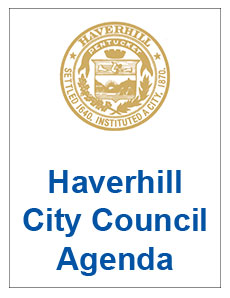Architect’s rendering of Salvatore Lupoli’s “The Heights.”
The city will pay an estimated $420,000 in interest over 20 years if Haverhill city councilors agree to a plan to borrow $1.12 million for public spaces around a planned $30 million downtown tower.
WHAV, which broke the story last week about a shortfall threatening the 10-story residential and commercial project, has obtained the lending plan. The estimate assumes a bond interest rate of 3.25 percent. Borrowing costs took center stage during a series of email exchanges between councilors and Mayor James J. Fiorentini late last week. Councilors, led by Council President John A. Michitson, peppered the mayor with questions in advance of hearing the plan Tuesday night.
Standing firmly in support of “The Heights” project, Fiorentini also acknowledged developer Salvatore N. Lupoli has made two payments totaling $137,666.67 toward the $701,000 cost of buying the city’s riverfront parking lot. An agreement allows Lupoli to pay up to five more annual installments of $112,667.67 before taking ownership of the land, known as the Riverfront Promenade, located between Rent-A-Center and Haverhill Bank on Merrimack Street.
Another area of contention is what, if anything, the city will pay to lease Lupoli’s other parcel at 192 Merrimack St. for a two-level parking deck. The mayor responded there is no lease agreement yet and that the city is working on easements.

The complicated Lupoli plan is split across two parcels with Haverhill Bank between them. Click image to enlarge. (Architect’s drawing.)
Demolition of the private building, which most recently housed Ocasio’s True Martial Arts and a church, was paid from a $2 million state MassWorks grant. WHAV reported last February that Haverhill Purchasing Director Steven S. Bucuzzo awarded a $200,000 contract to S&R Construction of Lowell to demolish the single-story building. Costs also include environmental remediation and site clearance. Because of the state money, the project required a public bid process.
Economic Development and Planning Director William Pillsbury told WHAV last week the nearly back-to-back Harbor Place and Lupoli projects forced the city to change boardwalk plans to better integrate the two ventures. Doing so cost the city $548,000 from a different 2015 grant when the state refused to extend a spending deadline. Pillsbury told WHAV, “We did not want to have to build one and not have it compatible with the other.” Fiorentini also said bids on the riverfront boardwalk extension and parking deck came in higher than expected.
Teachers’ Union Lashes Out at Project Spending
The strongest criticism of the project so far has come from the Haverhill Education Association, which is negotiating a new contract on behalf of teachers and other education professionals.
“What about investing in our schools? The past three years Haverhill has spent 18 percent less than the state average per pupil. When our members and many in the public advocated for increased spending we were told not only that current levels are ‘adequate’ but that we couldn’t afford to spend more on schools if we wanted to without jeopardizing the future of the city. Do you not agree that the return on our investment in our schools is greater than that we might gain from a boardwalk or parking garage?” Union officials wrote on a social media page.
The mayor responded successful completion of the project will help bring in money for education.
“Of course, I agree that investing in our schools is and always has been a top priority. If more money comes in, from projects such as this, more money can go out. Of course, we should do both, no one is suggesting otherwise. You should be all for this project, it will give us more resources. Isn’t that what we want?” Fiorentini wrote.
Other educators are cheering on the project. Northern Essex Community College plans to locate a new culinary arts and hospitality center in the building. With approximately $5 million in overhead costs, the college was seeking private funding to supplement the $3 million in state money it’s already received. A $150,000 Workforce Skills Capital Grant was also extended to purchase equipment.
The issue won’t be decided Tuesday as loan orders must be placed on file at least two weeks before city councilors may approve them.


